Zelensky slams Putin after historic humiliation: ‘Is Russia serious?’
After pulling off a devastating attack deep inside Russia he says will “undoubtedly be in history books”, President Volodomyr Zelensky is talking tough.
World
Don't miss out on the headlines from World. Followed categories will be added to My News.
Ukrainian officials and President Volodomyr Zelenksy have questioned if Russia is “serious” about peace after talks in Istanbul concluded after little more than an hour.
But there are moves to swap prisoners and schedule in more talks.
The peace summit came just hours after Kyiv’s brazen attack deep inside Russia which was followed by both nations launching large-scale drone barrages at each other.
Vladimir Putin’s military has resurged after the humiliating destruction of dozens of aircraft overnight, with analysts warning the next 48 hours could be crucial to the final outcome of the war.
The Russian defence ministry said its air defence units had “intercepted and destroyed” 162 Ukrainian drones, following the massive attack on its aircraft carried out by a sophisticated Ukraine attack.
The majority were downed over regions bordering Ukraine, with 57 intercepted over the Kursk region and 31 over the Belgorod region, it said.
Ukraine said Russia had attacked its territory with 80 drones overnight, including Iranian-designed Shahed-type unmanned aerial vehicles, as well as four missiles. It added that the projectiles managed to strike 12 targets.
Peace talks last for one hour
On Monday, Ukrainian and Russian delegations met at Istanbul’s Ciragan Palace.
The meeting lasted for little more than an hour. It did not lead to a major breakthrough.
President Volodomyr Zelensky said “Putin will keep playing games” and string out talks unless the US and Europe impose “a new level of pressure, new sanctions”.
Only that could end “Russia’s hunger for aggression,” he said at a NATO conference in Lithuania, which borders Russia.
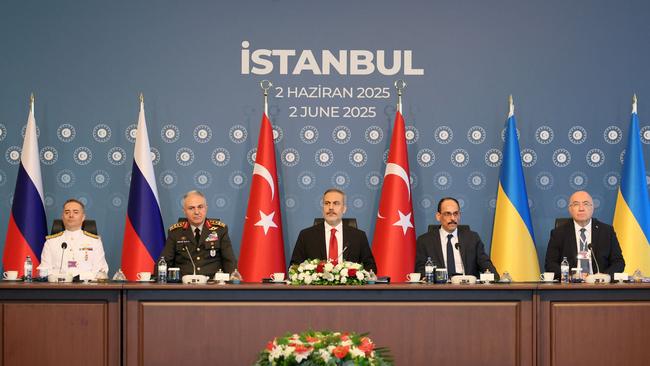
‘If Russia is serious, it will agree’
Ukraine said Russia rejected, again, a 30 day ceasefire. Russia said it offered a short ceasefire on the frontline so bodies could be recovered.
Moscow has now given Kyiv its memorandum for ending the conflict, which Mr Zelensky had been calling for.
The two warring nations have also reportedly agreed to a prisoner swap while Kyiv says it will hand over the remains of 6000 deceased Russian Ukrainian soldiers.
Ukraine has said a further round of peace talks should take place at the end of the month and a meeting between Mr Zelensly and Putin was discussed.
“We are calling for real work to end this war – ceasefire, humanitarian actions, leaders’ meeting,” said defence minister Rustem Umerov after the meeting.
“If Russia is serious, it will agree. If not, sanctions must follow”.
Ukraine also asked Russia to release all Ukrainian children taken to Russia during the conflict. Moscow has claimed it was a humanitarian act to take than out of harm’s way.
“The ball is in Russia’s court. True good faith is not words, but actions. And now is the time to prove it,” said senior Zelensky aide Andriy Yermak.
Donald Trump, who has taken on a de facto mediator role, has yet to signal how he will respond. But any delay could play to the Kremlin’s advantage — buying time and potentially softening the threat of renewed US sanctions if a ceasefire isn’t reached soon.
MORE: Putin’s $2.1bn ‘kleptocrat’ mansion exposed
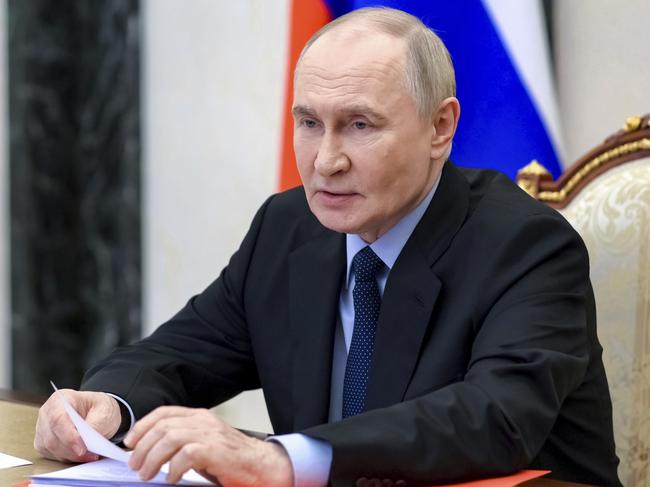
Zelensky’s strong message to US, Russia
Following the attacks on Sunday, Mr Zelensky was singing his country’s praises, exclaiming that the devastating attack deep inside Russia overnight will “undoubtedly be in history books”.
After months of diplomatic pressure from the United States, including Donald Trump’s suggestion that Ukraine should cede territory in exchange for peace, Kyiv has responded with a show of force that has proven its might.
The highly sophisticated attack, which took 18 months of top-secret planning to take out approximately 41 Russian aircraft, has been Mr Zelensky’s message to Trump that Ukraine is not, in fact, a lamb on a hill waiting to be rescued.
The suggestion that a nation defending its borders against an invading force should cede its territory in a ceasefire pact has somewhat soured relations between Ukraine and the new Washington administration.
Meanwhile, Mr Trump is scrambling to make good on his campaign promise to end the conflict, but progress is slow.
But the latest embarrassment to Putin is sure to light a fresh fire under the Russian leader, who claimed last week that he was finally ready to work with Ukraine on reaching a memorandum for peace and is prepared to discuss “compromises”.
Putin also said he wanted the “root causes of the crisis” to be addressed and suggested negotiations were “on the right track”.
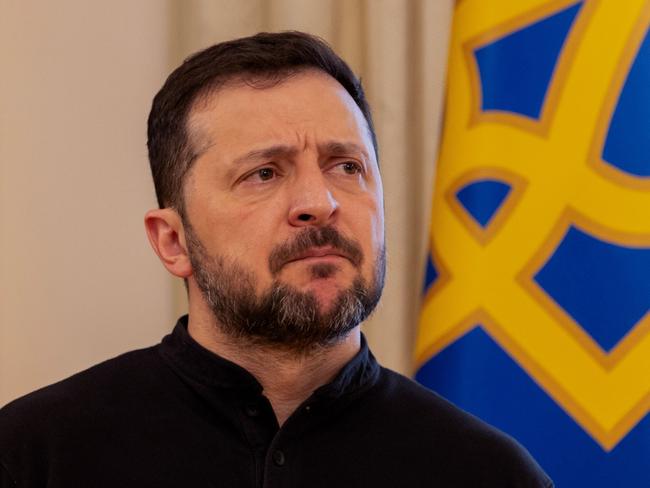
‘Greatest setback since WWII’
Following Ukraine’s sophisticated strike thousands of kilometres inside Russian territory, British historian Peter Frankopan, writing on Substack, tried to fit the events of the day into a broader context. He described the strikes as Russia’s “greatest military setback since the Second World War”.
“It’s been one of the most extraordinary days in Russian military history, with more damage done to the Kremlin’s defences in a single day than during the Second World War - far worse than the disastrous Battle of Hill 3234 or the Panjshir Offensive during the Soviet invasion of Afghanistan,” wrote Dr Frankopan, adding that it had been “the most important day” in the war since Russia launched its invasion in February of 2022.
“It represents a shock and embarrassment to the Russian military. But it has also knocked a hole in its nuclear triad,” he said.
“What Ukraine has achieved is not just impressive, but game-changing for the war—and for Russia’s status as a nuclear power.
“Russia’s defence industry is already stretched by the demands of the war and under severe Western sanctions, which means it faces shortages of critical components.
“Building or repairing strategic bombers involves specialised skills and facilities, many of which are operating under constrained capacity.
“This is a body blow, in other words.”
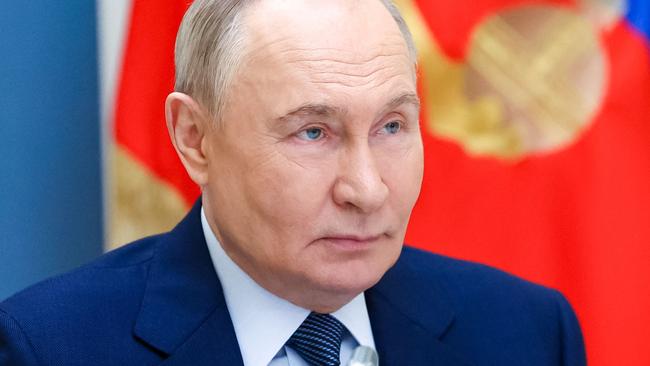
The specific targets destroyed by Ukraine were, in Dr Frankopan’s view, critical to Russia’s credibility as a nuclear power.
“Ukraine has done more than embarrass Russia: in fact, it is hard to overstate the damage it has done to Russia, its military architecture and its entire defensive and offensive capabilities,” he said.
“The Tu-95 and Tu-22M3 bombers are key platforms for launching cruise missiles used in conventional and nuclear missions.
“They form part of a triad that is fundamental to great power and superpower status - of being able to deploy nuclear weapons on land, in the air and at sea.
The attacks, then, are tactically brilliant, militarily significant for the war in Ukraine but also have consequences for Russia’s wider capabilities.
“And of course, they also send a message, namely a warning to Moscow that the illusion of distance is no longer a guarantee of safety.”
Extraordinary extent of Ukraine’s attack
To prepare for the attack, codenamed Operation Spider’s Web, Ukraine smuggled hundreds of deadly drones across the Russian border. Those drones, hidden in special compartments inside freight trucks, were then driven to multiple locations thousands of kilometres apart from one another. They penetrated as far as Siberia, roughly 5000km from Ukraine’s capital, Kyiv.
Other targets were in Murmansk in the Arctic Circle, Ryazan southeast of Moscow, and Ivanovo to the northeast of the Russian capital.
The trucks released the drones at a coordinated moment, launching them towards Russian air bases, where they wrought havoc.
Soon afterwards, the Ukrainian Security Service was boasting that Putin’s air force was “burning en masse”.
Ukraine claimed it had destroyed or damaged at least 41 aircraft, including Tu-95 bombers, which carry up to eight Kh-101 missiles with 400kg warheads and a range of well over 4000km. It released video of the planes being destroyed on the tarmac.
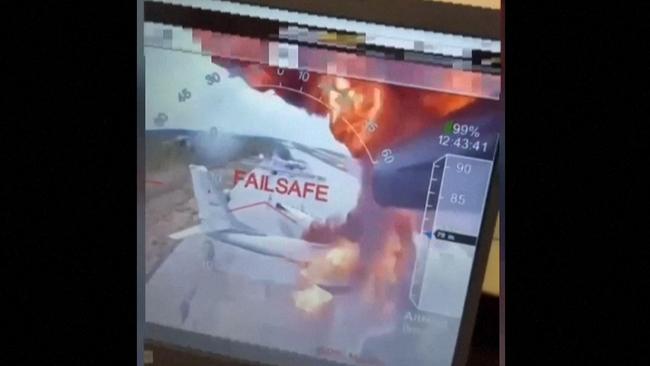
“An absolutely brilliant result. A result achieved solely by Ukraine,” Ukrainian President Volodymyr Zelensky declared after a briefing with General Vasyl Maliuk, head of Ukraine’s Security Service.
“One year, six months and nine days from the start of planning to effective execution. Our most long range operation.
“Of course, not everything can be revealed at this moment, but these are Ukrainian actions that will undoubtedly be in the history books. Ukraine is defending itself, and rightly so. We are doing everything to make Russia feel the need to end this war.
“Russia started this war. Russia must end it.”
He stressed that all “our people involved in preparing the operation” made it out of Russia.
Mr Zelensky’s chief of staff had, rather cheekily, foreshadowed the strikes shortly before they were launched, posting a single emoji on social media: a spider’s web.
🕸ï¸
— Andriy Yermak (@AndriyYermak) June 1, 2025
Military analysts were stunned by the scale of Ukraine’s operation. And political analysts could not ignore the implicit message to Western nations, particularly the United States. You might have noted Mr Zelensky’s choice of words: “A result achieved solely by Ukraine.”
“No intelligence operation in the world has done anything like this before,” said Serhii Kuzan, a military expert and current Chairman of the Ukrainian Security and Cooperation Centre.
“These strategic bombers are capable of launching long range strikes against us. There are only 120 of them and we struck 40. That’s an incredible figure.”
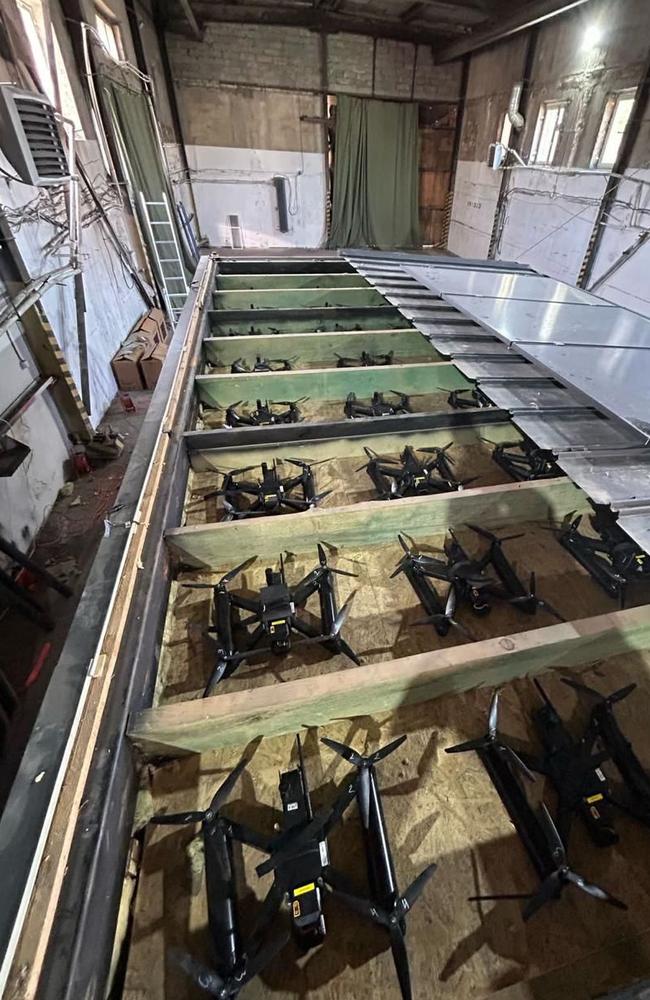
Another Ukrainian military expert, Oleksandr Kovalenko, said the bombers in question were no longer being produced in Russia, and therefore might prove impossible to replace.
On the political front, the BBC’s Ukraine correspondent Svyatoslav Khomenko recalled a recent conversation with a Ukrainian government official.
“The biggest problem is that the Americans have convinced themselves we’ve already lost this war. And from that assumption, everything else follows,” the official said.
It’s notable that, according to officials from both nations, Ukraine did not warn the United States before launching the operation.
Leading Ukrainian voices tied it directly to the attitude of the Trump administration, which has been pushing Mr Zelensky to seek a peace deal, potentially on unfavourable terms.
“This is what happens when a proud nation under attack doesn’t listen to all those: ‘Ukraine only has six months left.’ ‘You have no cards.’ ‘Just surrender for peace, Russia cannot lose,’” said journalist Illia Ponomarenko. One of those quotes was a direct reference to Donald Trump’s words during his infamous Oval Office confrontation with Mr Zelensky.
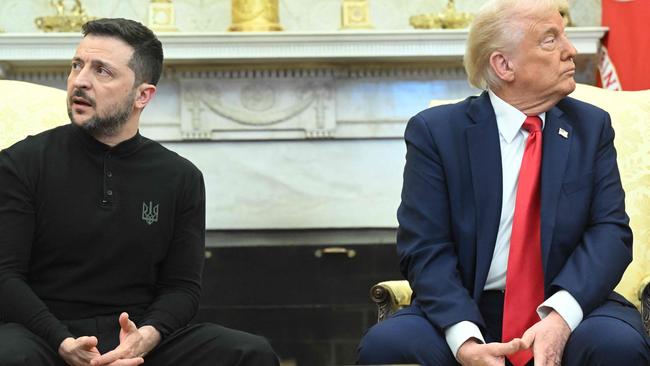
The timing of the strikes is also conspicuous, given they came just before preliminary peace talks between Ukrainian and Russian representatives in Turkey.
Ukraine’s message, that it is capable of attacking deep within Russia, could be designed to give it more leverage in those negotiations.
Phillips O’Brien, professor of strategic studies at St Andrews University in Britain and a leading analyst of the conflict, called the raid “the most remarkable and successful operation of the war”.
“This is a big blow to Russian strategic air power, which is hard to overestimate. We do not know what the Russian reaction will be. However, we can assume it will be violent.”
Rybar, an account on the Telegram message platform that is close to the Russian military, called it a “very heavy blow” for Moscow and pointed to what it called “serious errors” by Russian intelligence.
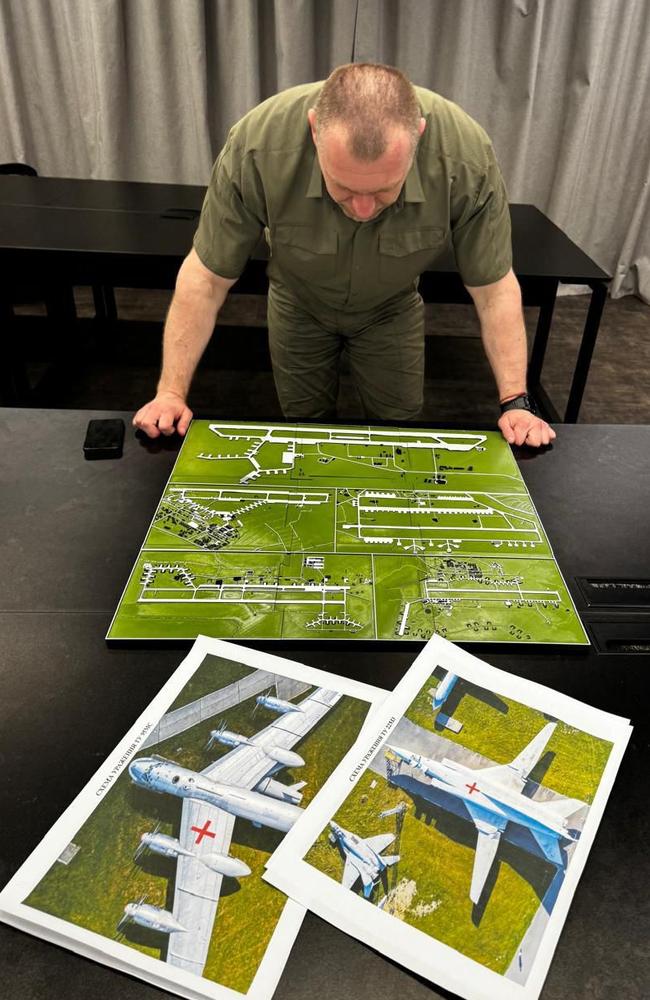
‘Russian Pearl Harbour’
Several pro-Russian military bloggers have described the strike as a “Russian Pearl Harbour”.
The Trump administration was not aware of the drone strikes before they happened, US and Ukrainian officials told Axios.
Mr Zelensky said on Sunday that he was still sending a delegation to Istanbul, led by his Defence Minister Rustem Umerov, for the talks with Russian officials. Russian news agencies also said the Russian delegation was still heading to Istanbul for the meeting.
Putin earlier ruled out a Turkish proposal for the countries’ leaders to attend the meeting.
Ukraine has previously said it is committed to peace, but is waiting for a memorandum from the Russian side setting out its aims.
“For a meeting to be meaningful, its agenda must be clear, and the negotiations must be properly prepared,” Mr Zelensky said on Friday.
“Unfortunately, Russia is doing everything it can to ensure that the next potential meeting brings no results.”
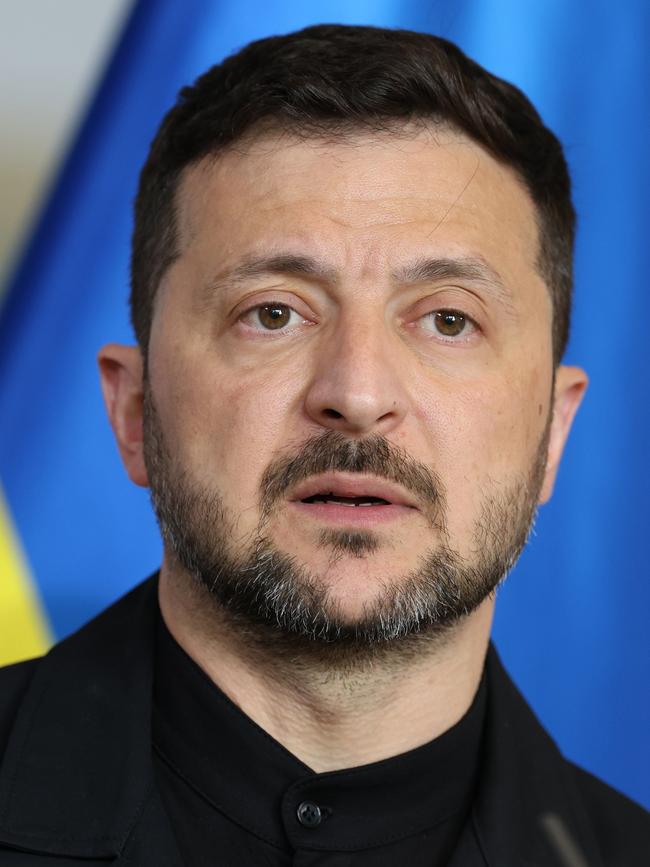
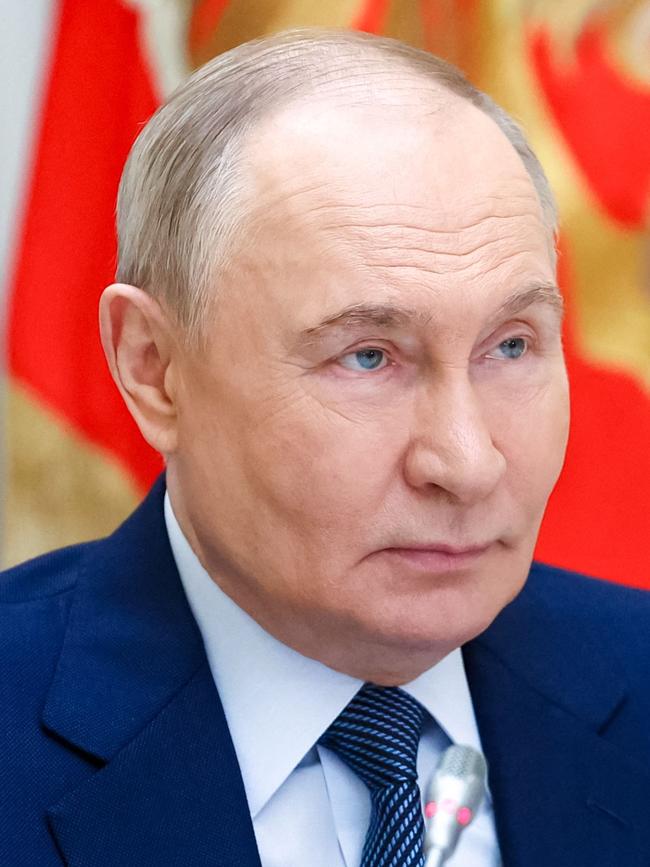
Mr Zelensky set out his country’s position on the talks in the wake of Sunday’s attack, demanding a complete and unconditional Russian ceasefire, prisoner release and the return of abducted children.
Russia so far has rejected calls for an unconditional ceasefire and repeatedly made demands that Ukraine has rejected.
- with AFP and The Times
Originally published as Zelensky slams Putin after historic humiliation: ‘Is Russia serious?’


